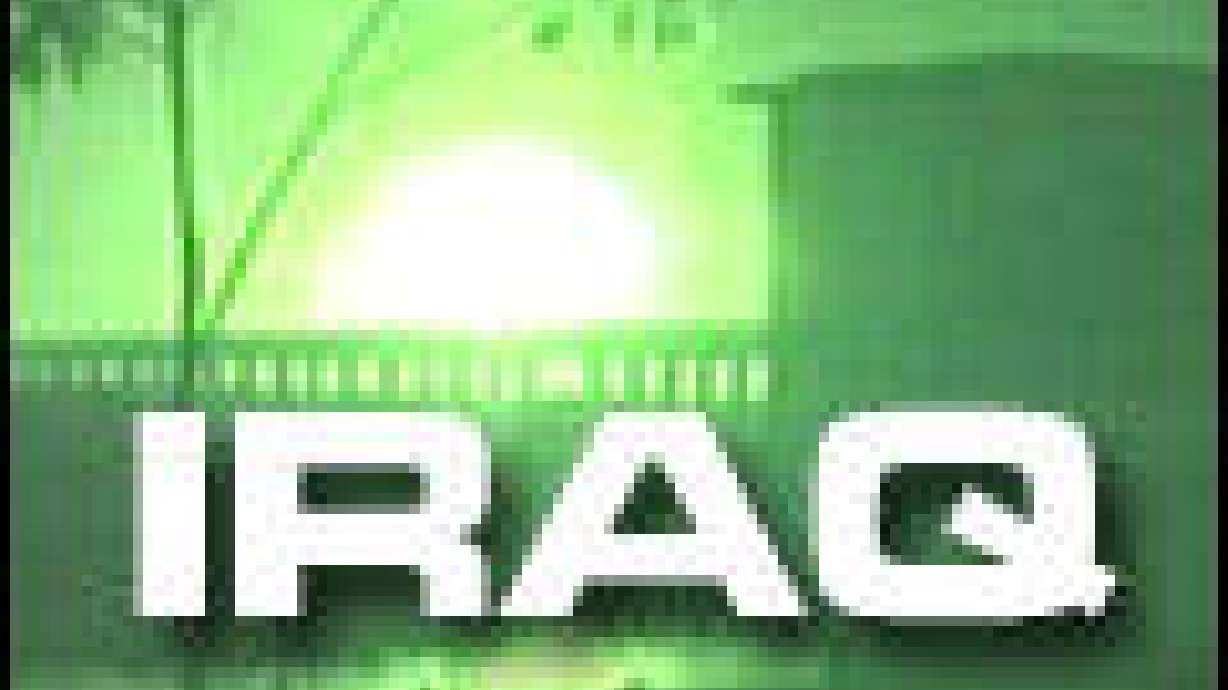Estimated read time: 4-5 minutes
This archived news story is available only for your personal, non-commercial use. Information in the story may be outdated or superseded by additional information. Reading or replaying the story in its archived form does not constitute a republication of the story.
MOSUL, Iraq (AP) -- Barefoot and wearing civilian clothes, the young Iraqi fighters marched Friday -- but away from battle, not into it.
With Saddam Hussein's forces abandoning the battle for Iraq's third-largest city without firing a shot, thousands of young men left their military positions, dropped their weapons and headed south toward Baghdad and home.
It was a humbling hike for the ex-soldiers, most unarmed and carrying little or nothing as they headed down a blacktop highway.
A strong sun beat down as some said it might take as long as a week for the trek to their hometowns.
"The Iraqi army evaporated," said Lt. Col. Robert Waltemeyer, commander of a U.S. Special Operations unit that helped secure Mosul without any bloodshed. There was no immediate estimate on the size of the force that disappeared.
"They may have just melted into the population," Waltemeyer said at an airbase in Mosul. The final holdout in the north was Saddam's hometown of Tikrit, which could provide the regime's last stand.
With the Iraqi 5th Corps opting to vanish before they were vanquished, U.S.-led forces took over Mosul -- only to find the city of low-slung buildings and wide boulevards consumed by a maelstrom of looting and thuggery.
Chaos ruled in the streets, with banks ransacked and ambulances hijacked at gunpoint. The turmoil -- just a day after a similar free-for-all in the northern city of Kirkuk -- was a potent reminder of the huge challenges ahead in post-war Iraq.
"There is absolutely no security," said Dr. Darfar Ibrahim Hasan, a staff physician at Saddam General Hospital. "The city has fallen into anarchy."
Three of the hospital's ambulances were stolen by armed men, he said. At Jumhuriya Hospital, the entire fleet of eight ambulances was taken at gunpoint just hours after the Iraqi troops left the city open for Kurdish fighters aided by U.S. Special Forces.
"Why are you late? Why are you late?" people shouted at the Special Forces convoy -- up to 40 trucks and other vehicles, along with hundreds of Kurdish fighters -- as it pulled into the city.
Part of the delay came when the Americans offered the Iraqis an opportunity to surrender, only to discover there were no Iraqis left to accept the offer.
Once inside Mosul, the coalition forces were powerless to halt the mayhem in this city of more than 1.5 million people.
Rioters stormed a bank, shredding Saddam regime currency into confetti. The University of Mosul, the nation's second largest, had its computer center stripped to the wall sockets. Looters carried lab equipment from science halls, and cars were packed with furniture from offices and classrooms.
One man found an antique sword and brandished it like a pirate.
The plunder from the high-rise Mosul Hotel -- tables, beds, mattresses -- was arranged like a yard sale on a grassy highway median. Gunmen drove past firing wildly into the air.
At an office of the state electrical company, many looters wore white hard hats stolen from the supply rooms.
Appeals for calm blaring from mosque minarets did little to stop the frenzy inside the commercial hub straddling the Tigris River.
Mosul residents finally took the law into their own hands, exiting mosques after dusk prayers and setting up positions in their neighborhoods, Al-Jazeera television said.
The residents, armed with clubs and sometimes small arms, stopped cars and collected stolen property from looters. The reclaimed property was taken to neighborhood mosques for safekeeping.
Kurdish militiamen seized war booty without fear of retribution: weapons, explosives and anti-aircraft artillery.
"These are the victors' prizes," said Kurdish commander Mohammad Johar Ishmail, overlooking a small arsenal lifted from an office of Saddam's Baath Party. A large painting of a smiling Saddam was torn to shreds and flapped in the breeze.
Saddam's strongholds in the north tumbled like dominoes; on Thursday, Kirkuk and its vast oil fields fell with barely a fight.
The Kurdish presence in the Mosul and Kirkuk prompted Turkish leaders to review plans for beefing up Turkey's military presence in northern Iraq.
Washington has promised to quickly take control of the Kirkuk area from Kurdish fighters. The Turkish government fears stronger and richer Iraqi Kurds could one day seek independence and encourage separatist Kurds in Turkey.
"Our sensitivities are clear, any step back is out of question," said Turkey's foreign minister, Abdullah Gul, in Ankara.
Kurds consider Kirkuk a pillar of their ethnic homeland. They also feel strong bonds with parts of Mosul, where about a quarter of the population is Kurdish.
But the main feature of Mosul is its role as a bastion of Arab culture in northern Iraq. About two-thirds of the Mosul area is Arab. Distrust of the U.S.-allied Kurdish militiamen is evident and could become a point of friction.
"Are we trading the dictatorship of Saddam for the dictatorship of the Kurds?" said Ali Kareem Rashid, an Arab businessman watching the looting at the Central Bank. "No Arab will tolerate this. The new leaders here must be fair and respect the Arabs."
(Copyright 2003 by The Associated Press. All Rights Reserved.)









